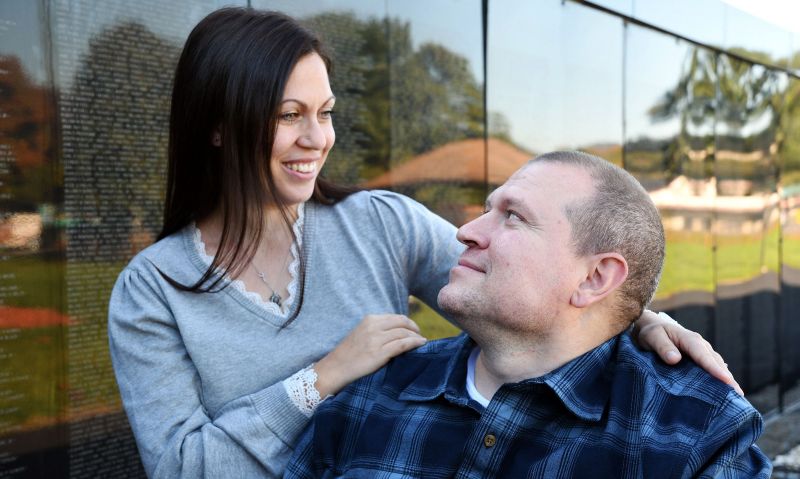
Caregiver Support Program leader makes respite and mental health priorities for caregivers.
Caregiver Support Program Executive Director Dr. Colleen Richardson has made ensuring caregivers receive mental health and respite services among her top priorities.
“We really want to support the caregivers so that they in turn can turn around to take care of the veterans,” she said.
The VA Caregiver Support Program offers respite services to those enrolled in both the Program of General Caregiver Support Services (PGCSS) and the Program of Comprehensive Assistance for Family Caregivers (PCAFC). Caregivers are able to use these respite services to take the time to care for themselves.
“That’s something we're focusing on this year,” Richardson said. “We're calling it Enhanced Respite for Caregivers because the amount of work that our caregivers do is unbelievable on so many levels.”
Dr. Richardson is a clinical psychologist who has spent most of her career as a practicing clinician. A Navy veteran, she was the first woman Operational Stress Control and Readiness Provider providing mental health care on the front lines with the 1st Marine Division’s Regimental Combat Team.
Caregivers are oftentimes so focused on the needs of their veterans and the other aspects of running a home, they will often put their own well-being on the backburner.
“The stress of caregiving all day, every day, especially for our veterans who have significant needs, who need round the clock care … it’s more than a full-time job,” said Richardson. “We want to provide them that respite and those mental health services.”
Richardson hope initiatives they’re implementing will encourage more caregivers to seek mental health services.
“We very severely underutilized mental health resources for caregivers,” she said. “So we've partnered with the Office of Mental Health and Suicide Prevention to put together a team of mental health staff within VHA solely to support caregivers.”
They plan national Clinical Resource Hubs where they will be able to be reached virtually and accessible. They hope to begin to pilot the program within the next few months.
The most important things that can be done to encourage more caregivers to seek mental health services is to destigmatize the need for treatment and peer-to-peer support.
“When you start having your peers — other caregivers — saying, ‘you need to go talk to somebody, it's OK to talk to somebody,’” that opens up conversations around mental health, she said.
The Caregiver Support Program has undergone significant changes since the implementation of the MISSION Act. As the Department of Veterans Affairs (VA) expanded PCAFC under the MISSION Act to include veterans who served before May 5, 1975, the influx of enrollees more than doubled the size of the program. VA also began conducting reviews to determine whether current enrollees met new eligibility requirements.
Families feared losing these benefits and it became clear the new criteria didn’t meet the needs of post-9/11 veterans and their caregivers. VA suspended the annual reassessments and assured veterans and family caregivers participating in the program they will not discharge or reduce stipends based on a reassessment. PCAFC is set to further expand to include veterans of all eras in October.
After returning to statutory criteria, the program has seen an increase in approval rates and 80% of applications are processed in under 90 days. They’ve also undertaken efforts to stabilize the approval rates between Veterans Integrated Services Networks (VISNs) and ensure standards are consistent.
“We have had the opportunity to really kind of just step back and look at the entire program,” said Richardson. “From the operational aspects of the program, to the veteran and caregiver experience coming into the program, to interviewing for the program … I want to improve all of those things.
“I don't want to just focus on one aspect of it, but the entire program as a whole to get it where it needs to be for veterans and caregivers as we move forward.”
Richardson says they’re anticipating a significant volume of applications come October and she and her staff have been working diligently to prepare. The leads of the VISNs across the country have been tasked with hiring 90% of the staff allotted to them.
“To date, we're at 84% of those staff hired and ready,” she said. “I fully anticipate we will have 90% of those staff onboarded and ready rock and roll come Oct. 1.”
To learn more about the Caregiver Support Program visit www.caregiver.va.gov
- Veterans Healthcare

